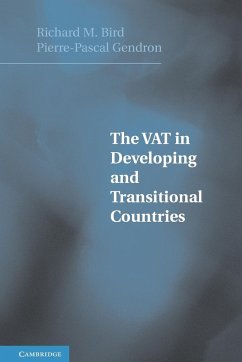This book reviews experiences with value-added taxes (VATs) around the world. VAT is the most important tax in most developing and transitional countries. This book draws on a wide range of experience and research to discuss the conceptual and practical issues related to VAT in a way that is relevant to students and to tax practitioners and officials around the world.
Value-added tax (VAT) dominates tax systems around the world. But should every country have a VAT? Is VAT always as good as it could be in economic, equity and administrative terms? In developing and transitional countries the answers to such questions are critical to stability, growth and development. VAT is a critical fiscal tool in most countries. But VAT can sometimes be better designed and almost always better administered. The key questions that must be answered in designing and implementing VAT are essentially the same in all countries. But different tax designs may best suit different countries facing different circumstances. This book reviews experiences with VATs around the world and assesses how the choice of particular design features may affect outcomes in particular contexts.
Value-added tax (VAT) dominates tax systems around the world. But should every country have a VAT? Is VAT always as good as it could be in economic, equity and administrative terms? In developing and transitional countries the answers to such questions are critical to stability, growth and development. VAT is a critical fiscal tool in most countries. But VAT can sometimes be better designed and almost always better administered. The key questions that must be answered in designing and implementing VAT are essentially the same in all countries. But different tax designs may best suit different countries facing different circumstances. This book reviews experiences with VATs around the world and assesses how the choice of particular design features may affect outcomes in particular contexts.
'This is a much needed book that reviews and evaluates the world's collective wisdom and experience on the design and, no less important, the operation of the VAT - the most important fiscal innovation of the last half-century. It provides a 'state of the art' survey and commentary on the extensive writings, both published and unpublished - hundreds of articles, books and papers are cited - that have appeared over the span of the last 40 years. In addition, the book incorporates a wealth of hands-on experience by the authors in countries as diverse as Egypt, Colombia, Ukraine, Jamaica, Mexico, Argentina and many others.' Sijbren Cnossen, University of Maastricht


